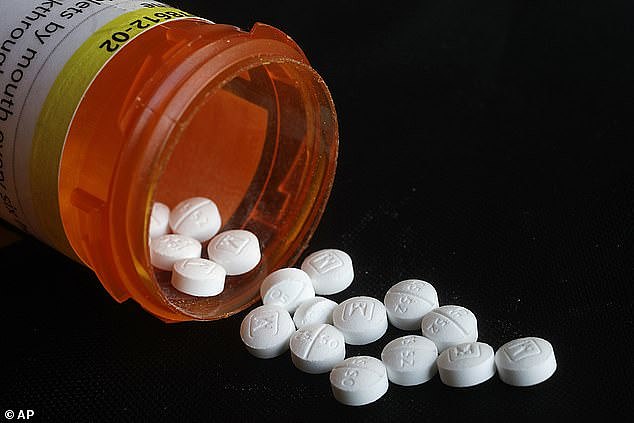Britain’s opioid epidemic: Huge rise in powerful painkiller prescriptions is leading to soaring addiction rates, overdoses and five deaths EVERY day

Britain is being gripped by an opioid epidemic which is being driven by a huge rise in powerful
Britain is being gripped by an opioid epidemic which is being driven by a huge rise in powerful painkiller prescriptions, an investigation has revealed.
Researchers from the Sunday Times say the prescription rise is leading to soaring addiction rates, overdoses and five deaths every year.
Britons are being handed the highly addictive painkillers which are ineffective after a few days, for chronic pain.
In the US, su
MPs, senior doctors and drug specialists have warned that the UK is heading for a similar crisis as the US.
Over the past ten year, addiction has spiralled, overdoses have doubled and deaths have rocketed.
Dr Andrew Green, of the British Medical Association, said: ‘There is no doubt that we have an epidemic of opioid use.’
While Norman Lamb a former health minister said: ‘This investigation illustrates the most shocking scandal – a state sponsored public health crisis.’
According to the investigation the number of opioids given out by GPs has risen by 10m in the past ten years.
There were 41.4m prescribed in 2017 – equating to 79 packs of pills per minute, according to NHS data.
The investigation also found five people are dying every day and opioid deaths up by 41 per cent to around 2,000 a year.
Blackpool has the highest opioid prescriptions while the Swansea has the highest death rate from the drug.
Hospital admissions has jumped to more than 11,500 a year.
Overdose deaths, particularly those from synthetic opioids, have increased especially sharply in the eastern US.
The number of people who died due to opioids at least doubled every three years between 1999 and 2016 in eight states: Connecticut, Illinois, Indiana Massachusetts, Maryland, Maine, New Hampshire and Ohio.
About 130 Americans die of opioid overdoses every day.
While harm reduction efforts – like handing out clean needles and naloxone – are helping to save lives from HIV infections transmitted through shared needles and by reversing overdoses, these are not necessarily long-term solutions.
Quitting powerful, addictive heroin, fentanyl or prescription opioids brings on intense withdrawals.
The symptoms – nausea, vomiting, intense anxiety, insomnia, excruciating body aches, tremors and sweating – can become very severe, but aren’t life-threatening








